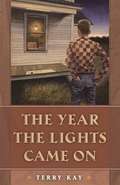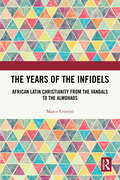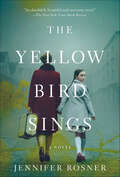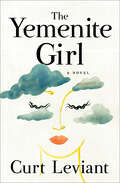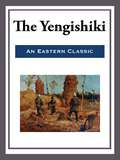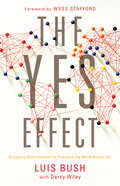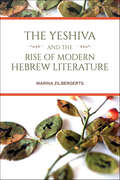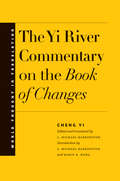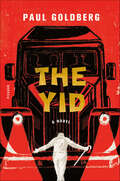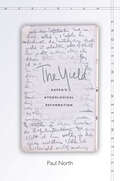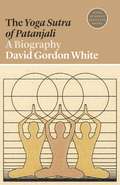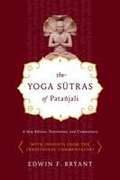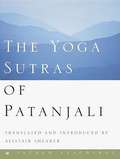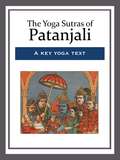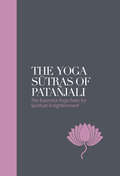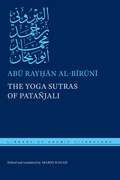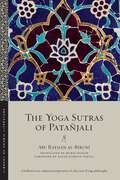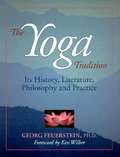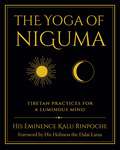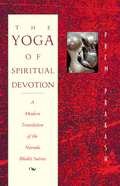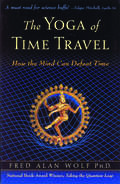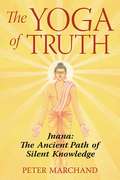- Table View
- List View
The Year of the Intern
by Robin CookThe nurse is desperate. "Dr. Peters, the patient has stopped breathing and he doesn't have any pulse." "I'm on my way." Dr. Peters, in his fifteenth day of internship, is running again. True, he has been trained to run, through high school, the Ivy League, and a prestigious eastern medical school. Now he has run all the way to Hawaii for his year as an intern. He has run away from the pressure and competition of the mainland medical system. He is tired-tired and scared. And with good reason. After two weeks on call, his exhausted nervous system is in rebellion. Worse yet, three years of the best medical training this country has to offer have taught him too little of practical value. He knows less than a nurse about medication; his surgical knots won't hold; all his knowledge about Schwartzman reaction and other esotérica is useless in the practical hurly-burly of daily hospital life. As for the man who has stopped breathing- "What time did he die?" Peters asks the nurse. "He died when you pronounced him dead, Doctor." Some parts of Hawaii do not disappoint. The climate and the girls are joyful. But in his attempt to grow as a doctor, Peters on his own. As posstesor of a medical degree he is called "Doctor" he is a stage prop, a human mechanism holding retractors through endless operations, staring at the back of the surgeon, unable to see, to learn. On the ward, senior doctors see to it that Peters does the work-ups-fills out charts, draws blood, the "scut" work-and handles night calls. Thus Peters alternates between frustrating days and panic-filled nights. In the emergency room it is much the same. Amid the banality of common colds, backaches, and surfing lacerations, Peters delivers a baby, handles the multiple wreckage of an automobile accident, and deals as best he can with patients who need years of psychiatric care rather than a few hurried minutes with an intern.
The Year the Lights Came On (Brown Thrasher Books Ser.)
by Terry Kay William J. ScheickReader’s Guide: “The Year the Lights Came On is Terry Kay's evocative tale of Colin Wynn, an twelve-year-old boy growing up in rural northeast Georgia. The year is 1947, and in Colin's hometown of Emery, Route 17 divides the community into the haves and the have-nots--those with and without electricity. This boundary creates a common bond among Colin and the other members of the Our Side Gang in their frequent confrontations with their affluent neighbors, the Highway 17 Gang. But then the Rural Electrification Administration brings electricity to the homes of the less privileged and Colin boasts that the wires will ‘knit us into the fabric of the huge glittering costume, Earth.’ “Drawing upon his own memories of growing up in Royston, Georgia, Kay follows Colin, his brother Wesley, and their friends through fierce battles fought on the school playground, an exhilarating visit to the Brady Dasher Flying Circus, desperate attempts to throw a search party off the trail in the Black Pool Swamp, and gleeful celebrations when all-important baseball games are won. “With an array of characters like Rev. Bartholomew R. Bytheway, a reformed fertilizer salesman who operates the Speaking-In-Tongues Traveling Tent Tabernacle, and Freeman Boyd, a Georgian Huck Finn who knows the swamp as well as the other boys know their backyards, Terry Kay's book draws a marvelously nuanced portrait of the rural South poised on the brink of change following World War II.”
The Years of the Infidels: African Latin Christianity from the Vandals to the Almohads
by Marco CristiniThis book examines African Latin Christianity from the fifth to the thirteenth century, exploring the complex interactions between local Christian communities and Vandals, Byzantines, and Arabs.Focusing on the resilience of successive generations of African Christians and their capacity to adapt to challenging political circumstances, Marco Cristini delves into their relationships with local rulers, popes, and European sovereigns such as Charlemagne. He argues that the history of Augustine’s heirs represents a crucial phase in the transformation of the Mediterranean’s religious landscape during Late Antiquity and the Early Middle Ages. This book offers readers fresh insights into much-debated topics, including the role of religious otherness under the Vandals, Justinian’s religious policies, Christian-Muslim relations, and the impact of Western medieval missionaries on indigenous Christian communities. It also sheds light on the remarkable longevity of African Latin Christianity, demonstrating its ability to not only survive but also thrive under ‘heretical’ or ‘infidel’ rulers for nearly eight centuries.With its accessible, in-depth, and comprehensive analysis, this book is an essential resource for scholars, postgraduates, and undergraduates interested in Late Antiquity, the Early Middle Ages, the history of North Africa, pre-modern Christianity, early Islam, and the Crusades.
The Yellow Bird Sings: A Novel
by Jennifer RosnerNational Jewish Book Award Finalist "Rosner’s exquisite, heart-rending debut novel is proof that there’s always going to be room for another story about World War II....This is an absolutely beautiful and necessary novel, full of heartbreak but also hope, about the bond between mother and daughter, and the sacrifices made for love." —The New York TimesIn Poland, as World War II rages, a mother hides with her young daughter, a musical prodigy whose slightest sound may cost them their lives.As Nazi soldiers round up the Jews in their town, Róza and her 5-year-old daughter, Shira, flee, seeking shelter in a neighbor’s barn. Hidden in the hayloft day and night, Shira struggles to stay still and quiet, as music pulses through her and the farmyard outside beckons. To soothe her daughter and pass the time, Róza tells her a story about a girl in an enchanted garden:The girl is forbidden from making a sound, so the yellow bird sings. He sings whatever the girl composes in her head: high-pitched trills of piccolo; low-throated growls of contrabassoon. Music helps the flowers bloom. In this make-believe world, Róza can shield Shira from the horrors that surround them. But the day comes when their haven is no longer safe, and Róza must make an impossible choice: whether to keep Shira by her side or give her the chance to survive apart.Inspired by the true stories of Jewish children hidden during World War II, Jennifer Rosner’s debut is a breathtaking novel about the unbreakable bond between a mother and a daughter. Beautiful and riveting, The Yellow Bird Sings is a testament to the triumph of hope—a whispered story, a bird’s song—in even the darkest of times.
The Yemenite Girl: A Novel
by Curt LeviantThis award-winning novel is &“a delightful, inventive tale&” about the pursuit of love and literary fame from &“a compassionate and witty satirist&” (Kirkus Reviews). It&’s the opportunity of a lifetime for middle-aged Ezra Shultish—a chance to the meet his literary hero, Nobel Laureate Bar Nun, a writer Ezra has worshipped for most of his career as a teacher and translator. Hoping to get a recording of the author reading his story, The Yemenite Girl, Shultish travels to Israel, where he finds himself pursuing his own Yemenite girl, as well as the elusive author. But will Ezra get the girl—or his own glimpse of literary fame? Winner of the Edward Lewis Wallant Book Award, The Yemenite Girl is Curt Leviant&’s comic novel on the nature of celebrity and the relationship between life and art. &“Shultish is a man with a life of his own. . . . And the celebrity, too, is remarkably drawn. . . . [The book] is done with great tact, feeling, and skill.&” —Saul Bellow, Pulitzer Prize– and Nobel Prize for Literature–winning author &“A passionate story . . . The charm of the text and the intensity of the subtext is what keeps the pages turning.&” —The New York Times Book Review &“Good comic writing and satire on the Hebrew literary scene with its jealous politicking for literary prizes.&” —The Washington Post
The Yengishiki/The Englishiki
by VariousShinto ("the way of the gods") is the indigenous faith of the Japanese people and as old as Japan herself. It remains Japan's major religion besides Buddhism. "Shinto gods" are called kami. They are sacred spirits which take the form of things and concepts important to life, such as wind, rain, mountains, trees, rivers and fertility. Humans become kami after they die and are revered by their families as ancestral kami. The kami of extraordinary people are even enshrined at some shrines. The Sun Goddess Amaterasu is considered Shinto's most important kami.
The Yes Effect: Accepting God's Invitation to Transform the World Around You
by Luis BushFrom the missions strategist behind "The 10/40 Window"In 1990, Luis Bush helped change modern missions by introducing the concept of the 10/40 window, a geographic region where large, dense populations of people suffered severe poverty and limited access to the gospel—essentially shining a light on the world&’s greatest need. Now, after decades spent serving in global missions mobilization, Luis has a unique perspective on what God is doing around the world. Though statistics and maps can be a great place to start, The Yes Effect reveals that true transformation begins when we restart our hearts—getting in sync with God&’s tenderness toward the oppressed and regaining compassion for the lost. In The Yes Effect, Dr. Bush shares his own story as well as inspiring stories of individuals and organizations around the world whose acts of love and justice are bringing hope and transformation in places of misery and immobility. From the orphans weeping in Bihar, India, to garbage collectors in Cairo, Egypt—from the single mom trying to find a way to feed her family as a Syrian refugee, to the church cowering under government control—God is at work in surprising places. And this transformation is sparked when ordinary people say yes to God, igniting an ongoing global chain reaction that sees glimpses God&’s kingdom springing up all over the world.Ultimately, The Yes Effect will give you an encouraging window into worldwide efforts to spread the gospel, and it will inspire you to give God your &“yes&”—and like so many others before you, become part of God&’s global story of transformation.
The Yes Effect: Accepting God's Invitation to Transform the World Around You
by Luis BushFrom the missions strategist behind "The 10/40 Window"In 1990, Luis Bush helped change modern missions by introducing the concept of the 10/40 window, a geographic region where large, dense populations of people suffered severe poverty and limited access to the gospel—essentially shining a light on the world&’s greatest need. Now, after decades spent serving in global missions mobilization, Luis has a unique perspective on what God is doing around the world. Though statistics and maps can be a great place to start, The Yes Effect reveals that true transformation begins when we restart our hearts—getting in sync with God&’s tenderness toward the oppressed and regaining compassion for the lost. In The Yes Effect, Dr. Bush shares his own story as well as inspiring stories of individuals and organizations around the world whose acts of love and justice are bringing hope and transformation in places of misery and immobility. From the orphans weeping in Bihar, India, to garbage collectors in Cairo, Egypt—from the single mom trying to find a way to feed her family as a Syrian refugee, to the church cowering under government control—God is at work in surprising places. And this transformation is sparked when ordinary people say yes to God, igniting an ongoing global chain reaction that sees glimpses God&’s kingdom springing up all over the world.Ultimately, The Yes Effect will give you an encouraging window into worldwide efforts to spread the gospel, and it will inspire you to give God your &“yes&”—and like so many others before you, become part of God&’s global story of transformation.
The Yeshiva and the Rise of Modern Hebrew Literature (Jews in Eastern Europe)
by Marina ZilbergertsThe Yeshiva and the Rise of Modern Hebrew Literature argues that the institution of the yeshiva and its ideals of Jewish textual study played a seminal role in the resurgence of Hebrew literature in modern times. Departing from the conventional interpretation of the origins of Hebrew literature in secular culture, Marina Zilbergerts points to the practices and metaphysics of Talmud study as its essential animating forces. Focusing on the early works and personal histories of founding figures of Hebrew literature, from Moshe Leib Lilienblum to Chaim Nachman Bialik, The Yeshiva and the Rise of Modern Hebrew Literature reveals the lasting engagement of modern Jewish letters with the hallowed tradition of rabbinic learning.
The Yi River Commentary on the Book of Changes (World Thought in Translation)
by Cheng YiA translation of a key commentary on perhaps the most broadly influential text of classical China This book is a translation of a key commentary on the Book of Changes, or Yijing (I Ching), perhaps the most broadly influential text of classical China. The Yijing first appeared as a divination text in Zhou-dynasty China (ca. 1045–256 bce) and later became a work of cosmology, philosophy, and political theory as commentators supplied it with new meanings. While many English translations of the Yijing itself exist, none are paired with a historical commentary as thorough and methodical as that written by the Confucian scholar Cheng Yi, who turned the original text into a coherent work of political theory.
The Yid: A Novel
by Paul GoldbergA DEBUT NOVEL OF DARING ORIGINALITY, THE YID GUARANTEES THAT YOU WILL NEVER THINK OF STALINIST RUSSIA, SHAKESPEARE, THEATER, YIDDISH, OR HISTORY THE SAME WAY AGAINMoscow, February 1953. A week before Stalin's death, his final pogrom, "one that would forever rid the Motherland of the vermin," is in full swing. Three government goons arrive in the middle of the night to arrest Solomon Shimonovich Levinson, an actor from the defunct State Jewish Theater. But Levinson, though an old man, is a veteran of past wars, and his shocking response to the intruders sets in motion a series of events both zany and deadly as he proceeds to assemble a ragtag group to help him enact a mad-brilliant plot: the assassination of a tyrant.While the setting is Soviet Russia, the backdrop is Shakespeare: A mad king has a diabolical plan to exterminate and deport his country's remaining Jews. Levinson's cast of unlikely heroes includes Aleksandr Kogan, a machine-gunner in Levinson's Red Army band who has since become one of Moscow's premier surgeons; Frederick Lewis, an African American who came to the USSR to build smelters and stayed to work as an engineer, learning Russian, Esperanto, and Yiddish; and Kima Petrova, an enigmatic young woman with a score to settle. And wandering through the narrative, like a crazy Soviet Ragtime, are such historical figures as Paul Robeson, Solomon Mikhoels, and Marc Chagall.As hilarious as it is moving, as intellectual as it is violent, Paul Goldberg's THE YID is a tragicomic masterpiece of historical fiction.
The Yield: Kafka's Atheological Reformation
by Paul NorthThe Yield is a once-in-a-generation reinterpretation of the oeuvre of Franz Kafka. At the same time, it is a powerful new entry in the debates about the supposed secularity of the modern age. Kafka is one of the most admired writers of the last century, but this book presents us with a Kafka few will recognize. It does so through a fine-grained analysis of the three hundred "thoughts" the writer penned near the end of World War I, when he had just been diagnosed with tuberculosis. Since they were discovered after Kafka's death, the meaning of the so-called "Zürau aphorisms" has been open to debate. Paul North's elucidation of what amounts to Kafka's only theoretical work shows them to contain solutions to problems Europe has faced throughout modernity. Kafka offers responses to phenomena of violence, discrimination, political repression, misunderstanding, ethnic hatred, fantasies of technological progress, and the subjugation of the worker, among other problems. Reflecting on secular modernity and the theological ideas that continue to determine it, he critiques the ideas of sin, suffering, the messiah, paradise, truth, the power of art, good will, and knowledge. Kafka's controversial alternative to the bad state of affairs in his day? Rather than fight it, give in. Developing some of Kafka's arguments, The Yield describes the ways that Kafka envisions we can be good by "yielding" to our situation instead of striving for something better.
The Yoga Sutra of Patanjali: A Biography (Lives of Great Religious Books #43)
by David Gordon WhiteThe rise, fall, and modern resurgence of an enigmatic book revered by yoga enthusiasts around the worldConsisting of fewer than two hundred verses written in an obscure if not impenetrable language and style, Patanjali's Yoga Sutra is today extolled by the yoga establishment as a perennial classic and guide to yoga practice. As David Gordon White demonstrates in this groundbreaking study, both of these assumptions are incorrect. Virtually forgotten in India for hundreds of years and maligned when it was first discovered in the West, the Yoga Sutra has been elevated to its present iconic status—and translated into more than forty languages—only in the course of the past forty years.White retraces the strange and circuitous journey of this confounding work from its ancient origins down through its heyday in the seventh through eleventh centuries, its gradual fall into obscurity, and its modern resurgence since the nineteenth century. First introduced to the West by the British Orientalist Henry Thomas Colebrooke, the Yoga Sutra was revived largely in Europe and America, and predominantly in English. White brings to life the improbable cast of characters whose interpretations—and misappropriations—of the Yoga Sutra led to its revered place in popular culture today. Tracing the remarkable trajectory of this enigmatic work, White’s exhaustively researched book also demonstrates why the yoga of India’s past bears little resemblance to the yoga practiced today.
The Yoga Sutras Of Patañjali: A New Edition, Translation, And Commentary
by Edwin BryantWritten almost two millennia ago, Patañjali's work focuses on how to attain the direct experience and realization of the purusa: the innermost individual self, or soul. As the classical treatise on the Hindu understanding of mind and consciousness and on the technique of meditation, it has exerted immense influence over the religious practices of Hinduism in India and, more recently, in the West. Edwin F. Bryant's translation is clear, direct, and exact. Each sutra is presented as Sanskrit text, transliteration, and precise English translation, and is followed by Bryant's authoritative commentary, which is grounded in the classical understanding of yoga and conveys the meaning and depth of the su-tras in a user-friendly manner for a Western readership without compromising scholarly rigor or traditional authenticity. In addition, Bryant presents insights drawn from the primary traditional commentaries on the sutras written over the last millennium and a half.
The Yoga Sutras of Patanjali
by Alistair Shearer“A wonderful translation, full of contemporary insight yet luminous with eternal truth. ”—Jacob Needleman The Yoga Sutraswere cast in their present form in India around the third century b. c. Yoga is from the Sanskrit root meaning “union,” and a sutra is a thread or aphoristic verse. The basic questions “Who am I?” “Where am I going?” “What is the purpose of life?” are asked by each new generation, and Patanjali’s answers form one of the oldest and most vibrant spiritual texts in the world. He explains what yoga is, how it works, and exactly how to purify the mind and let it settle into absolute stillness. This stillness is our own Self. It is the indispensable ground for Enlightenment, which is the ultimate goal of all our aspirations. Alistair Shearer’s lucid introduction and superb translation, fully preserving Patanjali’s jewel-like style, bring these ancient but vital teachings to those who seek the path of self-knowledge today. Bell Tower’s series, Sacred Teachings, offers essential spiritual classics from all traditions. May each book become a trusted companion on the way of truth, encouraging readers to study the wisdom of the ages and put it into practice each day.
The Yoga Sutras of Patanjali
by PatanjaliThe 'Yoga Sūtras of Patañjali' are 196 Indian sūtras (aphorisms) that constitute the foundational text of Ashtanga Yoga, also called Raja Yoga. In medieval times, Ashtanga Yoga was cast as one of the six orthodox āstika schools of Hindu philosophy.
The Yoga Sutras of Patanjali
by Swami VivekanandaThe practical and philosophical foundations of Raja Yoga, the most important text in Eastern religion, translated by the great Swami Vivekananda, with his illuminating commentary.
The Yoga Sutras of Patañjali (Library of Arabic Literature #68)
by Abū Rayḥān al-BīrūnīA brilliant cross-cultural Arabic interpretation of a key text of yoga philosophyThe Yoga Sutras of Patañjali is the foundational text of yoga philosophy to this day and is still used by millions of yoga practitioners and students worldwide. Written in a question-and-answer format, The Yoga Sutras of Patañjali deals with the theory and practice of yoga and the psychological question of the liberation of the soul from attachments.This book is a new edition and translation into English of the Arabic translation and commentary on this text by the brilliant eleventh-century polymath al-Bīrūnī. Given the many historical variants of the Yoga Sutras, his Kitāb Bātanjali is important for yoga studies as the earliest translation of the Sanskrit text. It is also of unique value as an Arabic text within Islamic studies, given the intellectual and philosophical challenges that faced the medieval Muslim reader when presented with the intricacy of composition, interpretation, and allusion that permeates this translation.A bilingual Arabic-English edition.
The Yoga Sutras of Patañjali (Library of Arabic Literature)
by David Gordon White Mario Kozah Abu Ray?an al-BiruniA brilliant cross-cultural interpretation of a key text of yoga philosophyThe Yoga Sutrasof Patañjali is the foundational text of yoga philosophy, used by millions of yoga practitioners and students worldwide. Written in a question-and-answer format, The Yoga Sutras of Patañjali deals with the theory and practice of yoga and the psychological question of the liberation of the soul from attachments. This book is a new rendering into English of the Arabic translation and commentary of this text by the brilliant eleventh-century polymath al-Biruni. Given the many historical variants of the Yoga Sutras, his Kitab Batanjali is important for yoga studies as the earliest translation of the Sanskrit. It is also of unique value as an Arabic text within Islamic studies, given the intellectual and philosophical challenges that faced the medieval Muslim reader when presented with the intricacy of composition, interpretation, and allusion that permeates this translation.An English-only edition.
The Yoga Tradition: Its History, Literature, Philosophy and Practice
by Georg FeuersteinThe author is founder-director of the Yoga Research Center in Northern California and the author of 30 books on yoga. The present volume is a revised and greatly enlarged edition of the author's 1989 work, Yoga: The Technology of Ecstasy .
The Yoga of Niguma: Tibetan Practices for a Luminous Mind
by Kalu Rinpoche Michele LoewImmerse yourself in the extraordinarily transcendent practice of the yoga of Niguma.The yoga of Niguma comes to us from a secret tradition passed down over hundreds of years by Buddhist yogis in Tibet. The practice originated with the eleventh-century female yogini Niguma, who mastered and transmitted a tradition of remarkable practices that culminate in physical, spiritual, and emotional wellness. In this book, His Eminence Kalu Rinpoche, a Tibetan master who holds this lineage for today&’s generation, is now opening up the practice to make its extraordinary benefits accessible to the modern yogi. The yoga of Niguma consists of twenty-five sets of yogic exercises. Some are physically challenging while others are quite subtle in nature; all are grounded in meditation on the breath. Kalu Rinpoche illuminates the practice by sharing his own personal journey with the yoga of Niguma and how the lineage came to be. He also teaches us how we can prepare the mind for this practice with meditation and how to balance our emotions. Then, Rinpoche takes us step-by-step through the twenty-five illustrated sequences of Niguma yoga. Coauthor Michele Loew, an international yoga teacher, shares supportive Hatha yoga techniques that will bolster your Niguma yoga practice. The yoga of Niguma is a revered method that integrates body, mind, and breath. Dive in to discover for yourself a gradual, profound groundswell of subtle awakening.
The Yoga of Spiritual Devotion: A Modern Translation of the Narada Bhakti Sutras
by Prem Prakash• The first translation of this great but little-known path of spiritual devotion written for the modern Western audience. • An insightful commentary aimed at making the path of love immediately accessible to Westerners. • A life-affirming and relationship-positive path of yoga. • Written in the spirit of the kirtans (ecstatic songs and dances) of Narada, sensitively translated by Prem Prakash. Bhakti Yoga, the path of devotion, is considered one of the primary paths for spiritual realization in yogic tradition. Its representative, Narada, is the embodiment of the enlightened sage who travels the universe spreading his sacred teachings. Unlike Jnana Yoga, the Yoga of Wisdom, the bhakti acolyte does not discriminate against material phenomena--for him, all phenomena are aspects of God. Within the context of Ananda, blissful love, the temporal is realized as the reflection of the eternal, and the soul is realized as the expression of God.
The Yoga of Time Travel
by Ph.D. Fred Alan WolfBuddha said he could move backward through time, observes theoretical physicist Fred Alan Wolf. Time travel is not just science fiction; it may actually be possible. Wolf draws on yoga and quantum physics to show that time is a flexible projection of mind. Cheating time, he says, is an ancient metaphysical idea from the Vedas having to do with moving through meditation to a place where time stands still.In reader-friendly language, Wolf explores how time and thought are bound together and how a change in ego structure could allow freedom from time's limitations. And he elaborates on benefits: Time travel, he asserts, could clarify our purpose; change our sense of self, the future, and death; and provide a hero's journey that might aid the entire community. Fascinatingly, Wolf thinks that, under certain circumstances, we might not only visit but even alter the past, with a ripple effect on the present.
The Yoga of Truth: The Ancient Path of Silent Knowledge
by Peter MarchandA guide to Jnana Yoga--the Way of Silent Knowledge--by direct contemplation of the Unchangeable • Shows that everything in one’s body, personality, thoughts, memories, and experiences has form and is changeable and, thus, is neither essential nor eternal • Identifies the witnessing consciousness within--all that remains when the ephemeral is eliminated--as the real Self, the one and only unchanging eternal Being In The Yoga of Truth, Peter Marchand, through a series of deceptively simple introspective questions, leads the seeker into discarding everything--body, personality, thoughts, memories, experiences--that disguises the ego’s relentless masquerade as the Self. This form of contemplation, with its constant commitment to witnessing without attachment, disempowers the ego’s fixation on its products, leading instead to the realization that the witnessing consciousness is, in fact, the one immutable Being within or without--the real Self, the true You. The universal illusion rests upon space and time, body and elements, the life force, mind, intellect, ego, and Self. Jnana Yoga reveals not only the insubstantial and illusory nature of our presumptions but also our habitual commitment to the illusion of being an individual that they create. This illusion collapses like a house of cards before direct inspection. When something has form, when it can change, it cannot be the eternal with which we seek union. Witnessing consciousness stands alone as that which is without form. In The Yoga of Truth, Marchand leads us simply, and compellingly, to the truth of our nature and the peaceful bliss of true Being.

